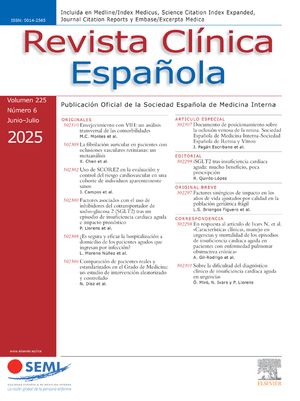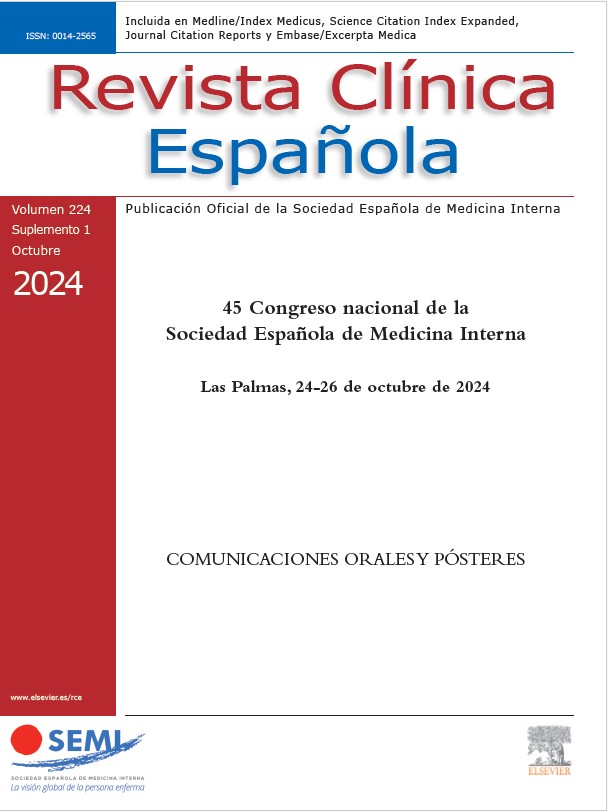En julio del 2020 se presentó en el Congreso de los Diputados español una propuesta de ley que proponía que la formación médica continuada se financiase exclusivamente por las Administraciones públicas, prohibiendo la participación privada.
ObjetivosRecoger la opinión de médicos y farmacéuticos sobre la propuesta de ley, conocer qué piensan acerca de la financiación de la formación médica continuada y su posible conflicto de interés.
MétodosEstudio descriptivo transversal a través de una encuesta de opinión, voluntaria y anonimizada, dirigida a médicos y farmacéuticos hospitalarios.
ResultadosSe analizan 435 encuestas, el 59,8% de mujeres. El 87,6% son facultativos especialistas y el 77,2% pertenece a especialidades médicas. El 55,2% no está de acuerdo con la propuesta de ley. El 92,4% se muestra de acuerdo con que el Estado y las instituciones privadas subvencionen la formación de sus trabajadores. El 54,2% está en desacuerdo con que cada profesional financie su formación, mientras que el 14% está de acuerdo. El 19,8% no se ha sentido cómodo cuando le han financiado un curso o congreso y el 74,5% considera que la participación privada de la financiación no influye en la prescripción.
ConclusionesLa mayoría de los encuestados no está de acuerdo con una propuesta de ley que pretende prohibir que la industria farmacéutica financie la formación médica continuada. Casi todos se muestran de acuerdo con que el Estado y las instituciones privadas subvencionen la formación de sus trabajadores. En general, los encuestados no detectan conflictos de interés en su relación con la industria.
In July 2020, a draft bill was introduced in Spain's Congress which proposed that continuing medical education be funded exclusively by the Spanish government, barring involvement from private entities.
AimsThis work aims to gather physicians’ and pharmacists’ opinions on this draft bill, learn what they think about the funding of continuing medical education and possible conflicts of interest.
MethodsThis work is a descriptive cross-sectional study conducted via voluntary anonymous surveys aimed at physicians and hospital pharmacists.
ResultsFour hundred thirty-five surveys were analyzed, 59.8% of which were from women. Of the respondents, 87.6% were specialist physicians and 77.2% were part of a specialist department. A total of 55.2% did not agree with the draft bill while 92.4% agreed that the government and private institutes should subsidize training for their workers. Furthermore, 52.4% disagreed that each professional should pay for his or her own training while 14% agreed they should. A total of 19.8% have felt uncomfortable when a course or conference has been paid for by another entity and 74.5% believe that the involvement of private entities in funding does not influence prescribing.
ConclusionsThe majority of those surveyed did not agree with a draft bill aimed at prohibiting the pharmaceutical industry from funding continuing medical education. Nearly all agreed that the government and private institutions should fund training for their workers. In general, those surveyed did not find conflicts of interest in their relationship with the industry.
Artículo
Diríjase desde aquí a la web de la >>>FESEMI<<< e inicie sesión mediante el formulario que se encuentra en la barra superior, pulsando sobre el candado.

Una vez autentificado, en la misma web de FESEMI, en el menú superior, elija la opción deseada.

>>>FESEMI<<<






